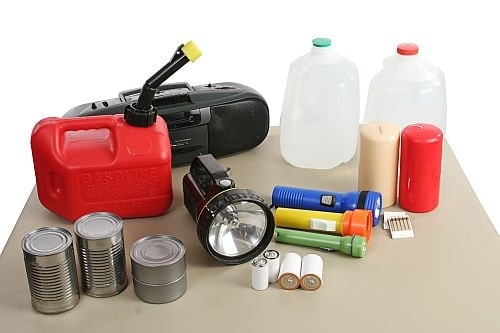How to Prepare for a Power Outage
Posted on October 09, 2025 By Alison P
Weather can be unpredictable, and we need to keep ourselves and our loved ones safe during a bad storm. One of the most common things that can occur during a bout of inclement weather is a power outage, which can be unsafe for a number of reasons. You won't always know how long the power outage will last, so it's important to be prepared. Here are some basic things you can do to prepare your home for loss of power any time of year.
Things To Do Before a Power Outage
- Be prepared for injuries. You should have an emergency kit at your home that's fully stocked with bandages in various sizes, sterile dressings and gloves, hand sanitizer and antibiotic towelettes, a thermometer, pain medicines, tweezers, and scissors. Make sure you purchase or build your own first aid kit that is large enough for your family.
- Make sure your generator is up and running. Review generator safety tips before using your generator for the first time each year.
- Stock up on bottled water. Water purification systems may not work when the power goes out.
- Purchase a battery operated or hand cranked radio to stay tuned into news and emergency information when power is out.
- Fill up all your vehicles' tanks in case gas stations lose their power as well. Remember, if you're using a generator, they require roughly 12-20 gallons of gas per day. Store all fuel away from the house.
- Keep a portable charger on hand for your phone, and if you have a landline, keep a corded phone available since cordless phones require AC power. Keep in mind that cell phones may be more reliable than landline phones when local service is disrupted.
- Be prepared for special needs. Tell your utility and local fire department before a storm if someone in your home uses an oxygen concentrator, ventilator or medical bed, as power may be restored to you sooner. Always keep a one month supply of medication on hand.
Don't Get Caught In the Dark
- Keep a few emergency automatic power failure night lights plugged in. Place them in dark hallways, bedrooms, common areas, basements, and garages. Emergency lights can last from 6-20 hours depending on the model. These can come in handy the first couple of hours during a power outage, especially when you're trying to make your way around a dark home.
- Always keep a number of flashlights or an emergency lantern with fresh batteries. Make sure to keep them all in a location that you can get to easily with little or no light.

Food Safety: What To Do When Power Remains Out for Over Four Hours
- Invest in a cooler and ice packs. Keep the cooler in a convenient location inside your home and ice packs in the freezer. When the power goes out, don't open your refrigerator if you don't have to, unless the power outage lasts longer than four hours. After four hours, get your cooler and ice packs and pack items from your refrigerator into your cooler. Throw away any food that has a temperature of more than 40 degrees Fahrenheit.
- If your freezer is half full, it will hold safely for up to 24 hours. A full freezer will hold safely for 48 hours - don't open the freezer if you can avoid it.
- Get the right food before you lose power. Keep at least a three-day supply of nonperishable foods such as crackers, whole-grain cereals, and canned goods. Don't forget a manual can opener!
It's important to plan ahead and be prepared, as you never know when a bad storm or power surge will hit. Sudden power outages can be frustrating and troublesome, but being prepared can eliminate some of that stress. For prolonged power outages, it may be wiser to seek shelter with friends, family, or at a hotel. Stay safe!